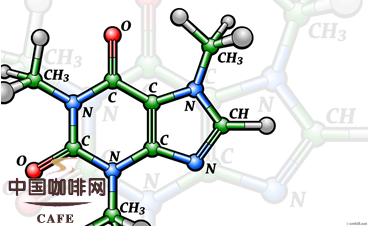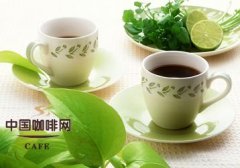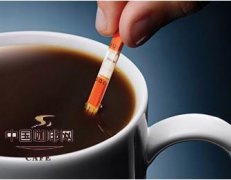Coffee health knowledge caffeine content affects your health
Wang Hai, the first person in China to crack down on counterfeiting, took Coca-Cola to court because it was not marked with "caffeine content". Caffeine is not uncommon in our daily life. In addition to drugs, coffee, tea, many soft drinks and functional drinks contain caffeine. Experts point out that adults consuming 200 milligrams of caffeine a day can lead to caffeine dependence, especially in children who are physically developing.

Caffeine is not uncommon.
Caffeine, also known as caffeine, is an alkaloid extracted from natural plants. Caffeine is not uncommon in our daily life. It is widely used in beverages as a food additive. In addition to coffee, there are many caffeinated drinks, one of which is the natural presence of caffeine in the drinks, such as cocoa and tea, and the other is adding caffeine to the drinks, such as some sodas and fruit juices.
1. Coffee
Coffee has a refreshing effect because it contains caffeine. In the United States, almost 75% of the caffeine taken comes from coffee. Generally speaking, a regular cup of instant coffee on the market contains 150 to 200 milligrams of caffeine, and a bag of instant coffee contains about 66 milligrams of caffeine.
two。 Tea
All kinds of green tea, black tea, oolong tea and so on that we often drink contain caffeine. The content of caffeine in tea is related to the method and time of brewing tea. the caffeine content of green tea ranges from 30 mg to 50 mg per cup (about 227 grams), while black tea contains an average of 47 mg per cup.
3. Soda water
Many soft drinks and energy drinks contain caffeine, and a 330 ml can of cola contains about 33 milligrams. Because some functional drinks contain caffeine and stimulate the central nervous system, it is not suitable for all people to drink functional drinks, especially for children.
4. Chocolate
There is so little caffeine in chocolate that it is often ignored. About 40 grams of milk chocolate contains the equivalent of 6 milligrams of caffeine. in addition, chocolate and coffee-flavored milk, ice cream and cheese may also contain caffeine.
Important Notice :
前街咖啡 FrontStreet Coffee has moved to new addredd:
FrontStreet Coffee Address: 315,Donghua East Road,GuangZhou
Tel:020 38364473
- Prev

Baristas are required to take coffee terms known as coffee common sense
Flavor [flavor] is the overall impression of aroma, acidity, and mellowness, which can be used to describe the overall feeling of contrast coffee. Acidity [acidity] is the acidity and strong quality of all coffee grown on the plateau. The acidity referred to here is different from bitterness or sour (sour) and has nothing to do with pH, but promotes coffee to exert its functions of invigorating the mind and clearing the taste.
- Next

Coffee has its advantages and disadvantages the advantages and disadvantages of drinking coffee
According to a report by Hong Kong's Ming Pao, laboratory tests show that there are 150 to 200 milligrams of caffeine in an ordinary cup of instant coffee on the market, of which Starbucks has the highest caffeine concentration. Office workers are refreshed by three cups in the morning, afternoon and evening, which has exceeded twice the recommended maximum intake of 300 mg for adults. In addition to drinking too much coffee may cause nervousness, irritability, anxiety, handshakes and insomnia.
Related
- Beginners will see the "Coffee pull flower" guide!
- What is the difference between ice blog purified milk and ordinary milk coffee?
- Why is the Philippines the largest producer of crops in Liberia?
- For coffee extraction, should the fine powder be retained?
- How does extracted espresso fill pressed powder? How much strength does it take to press the powder?
- How to make jasmine cold extract coffee? Is the jasmine + latte good?
- Will this little toy really make the coffee taste better? How does Lily Drip affect coffee extraction?
- Will the action of slapping the filter cup also affect coffee extraction?
- What's the difference between powder-to-water ratio and powder-to-liquid ratio?
- What is the Ethiopian local species? What does it have to do with Heirloom native species?

